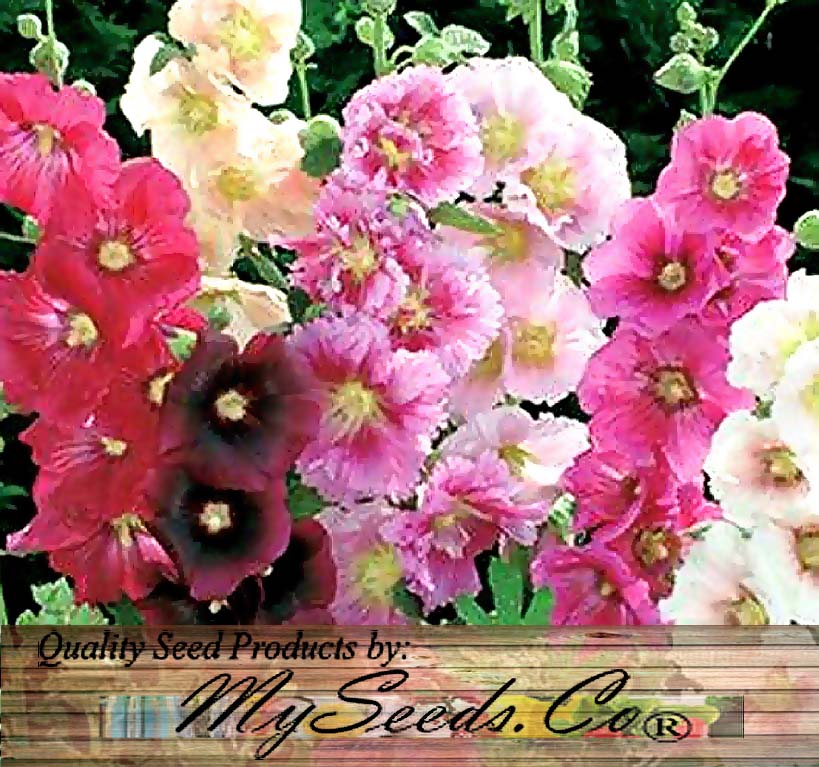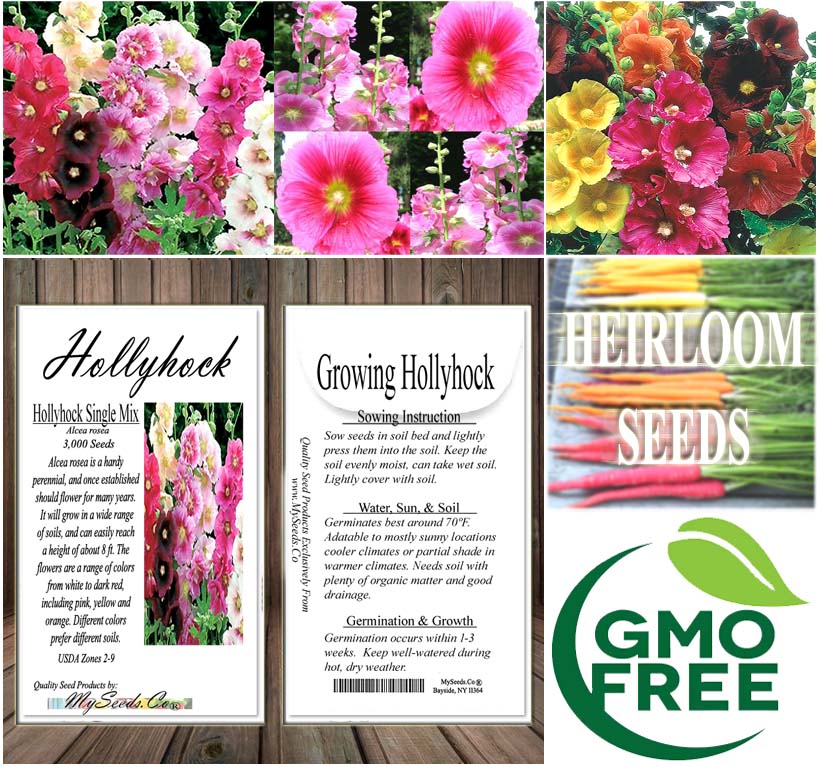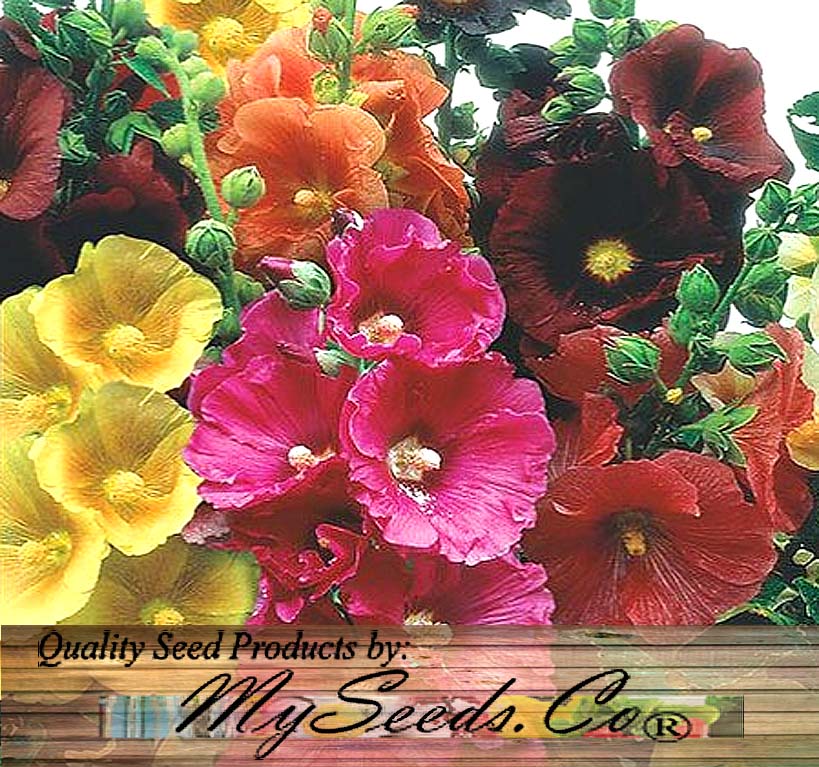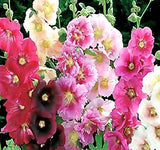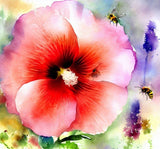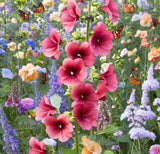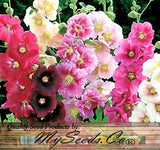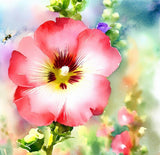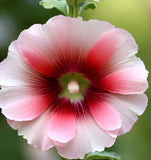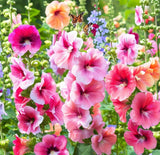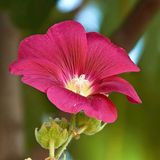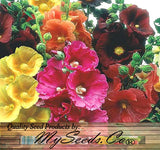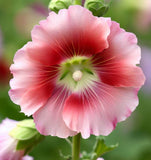Alcea rosea (Hollyhock, Single Mixed)
Alcea rosea (Hollyhock, Single Mixed) is a biennial or short-lived perennial flowering plant in the mallow family (Malvaceae). It is native to Asia and Europe but has been widely cultivated around the world as a garden plant. This is a short-lived perennial and have large leaves of heart shape. Unique feature of this plant is its flowers; they have various color ranging from white to dark red including pink. Different colors are due to the varying soils in which the plants grow. They are resistant to fungus and hence can be used as a fungus resilient herbs.
Hollyhock, Single Mixed, grows up to 8 feet (240 cm) tall and has a tall, sturdy stem covered with green, lobed leaves. The plant produces a showy display of single, cup-shaped flowers in a range of colors, including pink, red, yellow, white, and purple, with a darker center. The flowers bloom from mid-summer to early fall and are highly attractive to pollinators, such as bees and butterflies.
Hollyhock, Single Mixed, prefers full sun to partial shade and well-drained soil. It is tolerant of a wide range of soil types but prefers fertile, loamy soil. The plant is often used in cottage gardens, mixed borders, and naturalistic plantings. It is also used as a cut flower and for its medicinal properties, as the plant has been traditionally used to treat coughs, sore throats, and other respiratory problems.
| Number of Seeds | Max Coverage Area (Square Ft.) | |
|---|---|---|
| 1OZ | 3,125 | 200 |
| 1/4LB | 12,500 | 800 |
| 1/2LB | 25,000 | 1,600 |
| 1LB | 50,000 | 3,200 |
| 5LB | 250,000 | 16,000 |
Scientific Name: Alcea Rosea
Common Name: Hollyhock
Plant Type: Herbaceous Perennials
Family: Malvaceae
Native Range: north-eastern Mediterranean countries
Full growth height: 6-8 ft
Width in across: 1-2 ft
Exposure: Full Sun
Blooming Season: July to September
Seed Ripening: August to October
Flower: Showy
Attracts: Humming Birds and Butterflies
Flower Color: White, Pink and Dark Red
Tolerate: Rabbit and Black Walnut
Water Requirement: Medium
Soil Type: Clay, Loam, Sand
Zones: 2 to 10
Gardening Uses: Informal and Cottage, Prairies and Meadows
Other Uses: As a medicinal plant in the treatment of Inflammations




